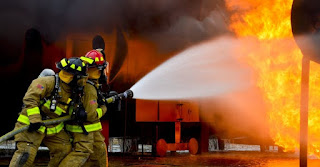The Illinois Home Repair and Remodeling Act - Now What?
I have written several posts to this page, most recently here, about the Illinois Home Repair and Remodeling Act (the HRRA) because I consider it to be an important law for contractors and consumers, and because of the variety of interpretations of the law provided by Illinois appellate courts. Well, Governor Quinn signed a bill into law in July that changed Section 30 of the HRRA. The new Section 30 reads as follows:
Attorney Garrett Kern at the Illinois Construction Law Blog has noted that the First District Appellate Court is the first appellate court to reference the new law (the bill was not yet enacted at the time the opinion was written), in Universal Structures, LTD. v. Buchman. The court, after holding that a contractor's failure to strictly comply with the HRRA did not invalidate an otherwise enforceable agreement, noted that this holding was consistent with the bill, and that homeowners suffering actual damages have a cause of action under Section 10a of the Illinois Consumer Fraud and Deceptive Business Practices Act (the Act).
To my knowledge, no Illinois appellate court has yet held a contractor liable under the Act for a violation of the HRRA. In most HRRA cases, the action was brought by the contractor seeking payment for its work, and the homeowner simply alleges a violation of the HRRA as a defense to having to pay the contractor. In Kunkel v. P.K. Dependable Construction, LLC, one of the rare cases in which the homeowner was the plaintiff and more fully discussed here, the Fifth District Appellate Court addressed the homeowner's claim under the Act. In Kunkel, the homeowner alleged the contractor violated Sections 2Z and 2Q(c) of the Act. Section 2Z provides that any person who knowingly violates the HRRA commits an unlawful practice under the Act. The Kunkel court held that since the homeowner had not presented any evidence of the contractor's state of mind, there was no evidence to prove the violation was "knowing" and therefore the homeowner's claim under Section 2Z of the Act could not stand.
Contrast the language of Section 2Z of the Act with the new HRRA Section 30. HRRA Section 30 makes no reference to 2Z, but merely states that a person damaged by a violation of the HRRA can sue under Section 10a of the Act. Section 10a is the portion of the Act that provides a private cause of action for anyone damaged as a result of a violation of the Act; it does not mention Section 2Z either.
So the question is, does a contractor's violation of the HRRA need to be "knowing" for a homeowner damaged by such violation to have a cause of action under Section 30 of the HRRA and through Section 10a of the Act, as would be required for an action under Section 2Z of the Act?
Sec. 30. Action for actual damages. Any person who suffers actual damage as a result of a violation of this Act may bring an action pursuant to Section 10a of the Consumer Fraud and Deceptive Business Practices Act.Attorney Garrett Kern at the Illinois Construction Law Blog has noted that the First District Appellate Court is the first appellate court to reference the new law (the bill was not yet enacted at the time the opinion was written), in Universal Structures, LTD. v. Buchman. The court, after holding that a contractor's failure to strictly comply with the HRRA did not invalidate an otherwise enforceable agreement, noted that this holding was consistent with the bill, and that homeowners suffering actual damages have a cause of action under Section 10a of the Illinois Consumer Fraud and Deceptive Business Practices Act (the Act).
To my knowledge, no Illinois appellate court has yet held a contractor liable under the Act for a violation of the HRRA. In most HRRA cases, the action was brought by the contractor seeking payment for its work, and the homeowner simply alleges a violation of the HRRA as a defense to having to pay the contractor. In Kunkel v. P.K. Dependable Construction, LLC, one of the rare cases in which the homeowner was the plaintiff and more fully discussed here, the Fifth District Appellate Court addressed the homeowner's claim under the Act. In Kunkel, the homeowner alleged the contractor violated Sections 2Z and 2Q(c) of the Act. Section 2Z provides that any person who knowingly violates the HRRA commits an unlawful practice under the Act. The Kunkel court held that since the homeowner had not presented any evidence of the contractor's state of mind, there was no evidence to prove the violation was "knowing" and therefore the homeowner's claim under Section 2Z of the Act could not stand.
Contrast the language of Section 2Z of the Act with the new HRRA Section 30. HRRA Section 30 makes no reference to 2Z, but merely states that a person damaged by a violation of the HRRA can sue under Section 10a of the Act. Section 10a is the portion of the Act that provides a private cause of action for anyone damaged as a result of a violation of the Act; it does not mention Section 2Z either.
So the question is, does a contractor's violation of the HRRA need to be "knowing" for a homeowner damaged by such violation to have a cause of action under Section 30 of the HRRA and through Section 10a of the Act, as would be required for an action under Section 2Z of the Act?
Nate Hinch is an attorney and partner at the law firm of Mueller, Reece & Hinch, LLC. He has offices at 404 N. Hershey Road, Suite C, Bloomington, IL 61704, and 809 Detweiller Drive, Peoria, IL 61615, and can be reached by phone at (309) 827-4055 and email at nhinch@mrh-law.com.


Comments
Post a Comment
Comments are welcome, just keep it clean, respectful to all views, and no spamming or soliciting. Thanks!